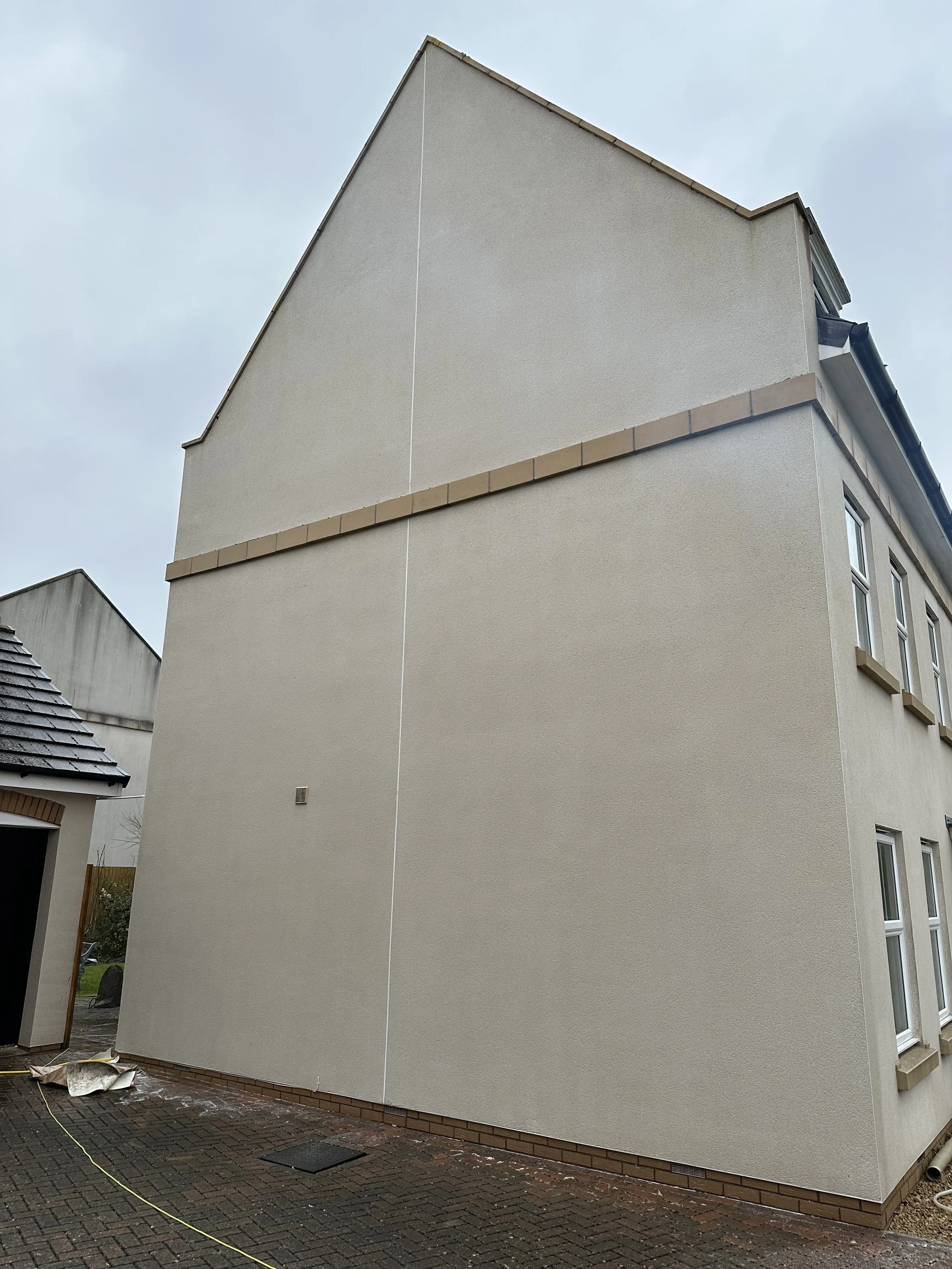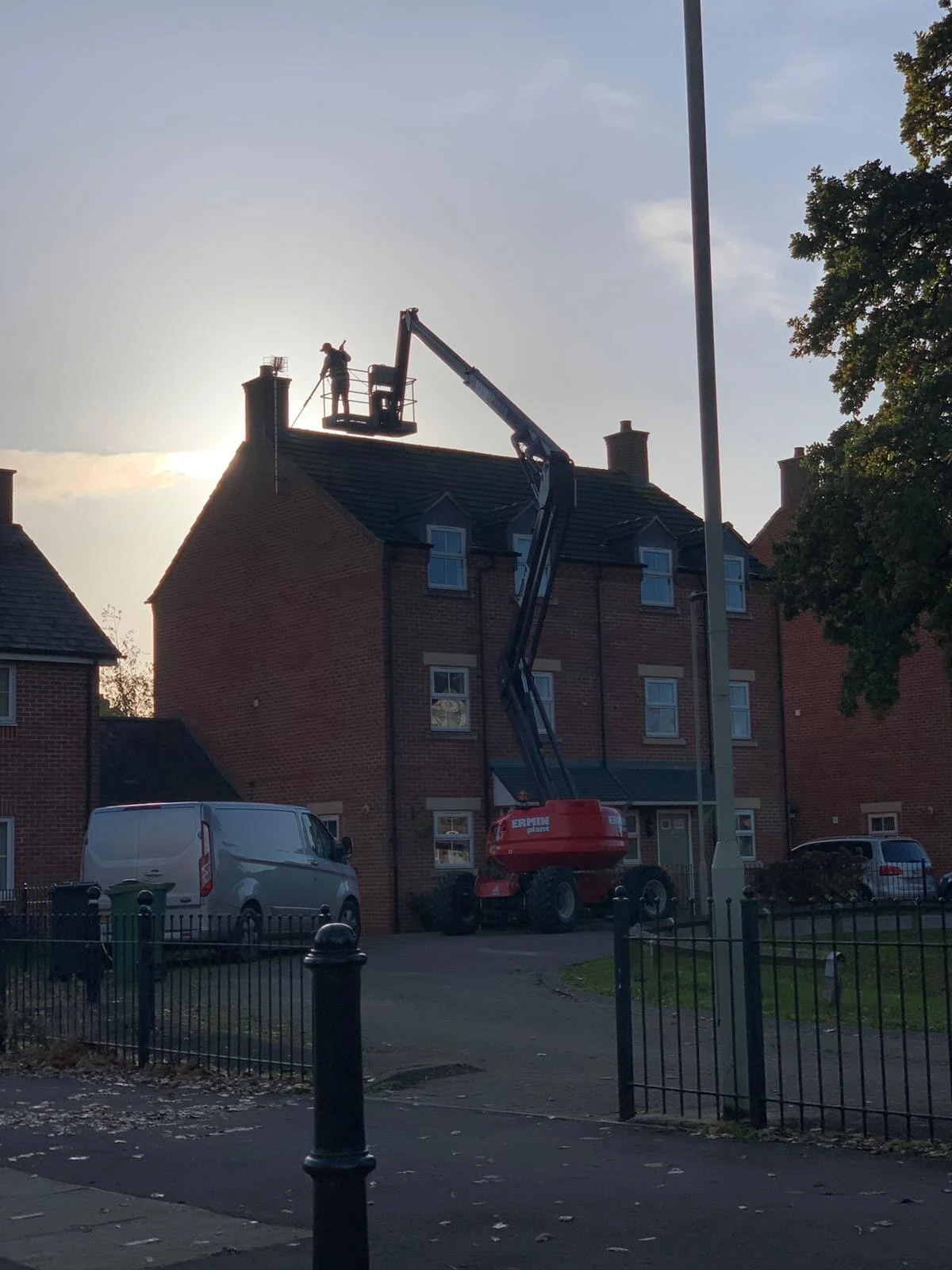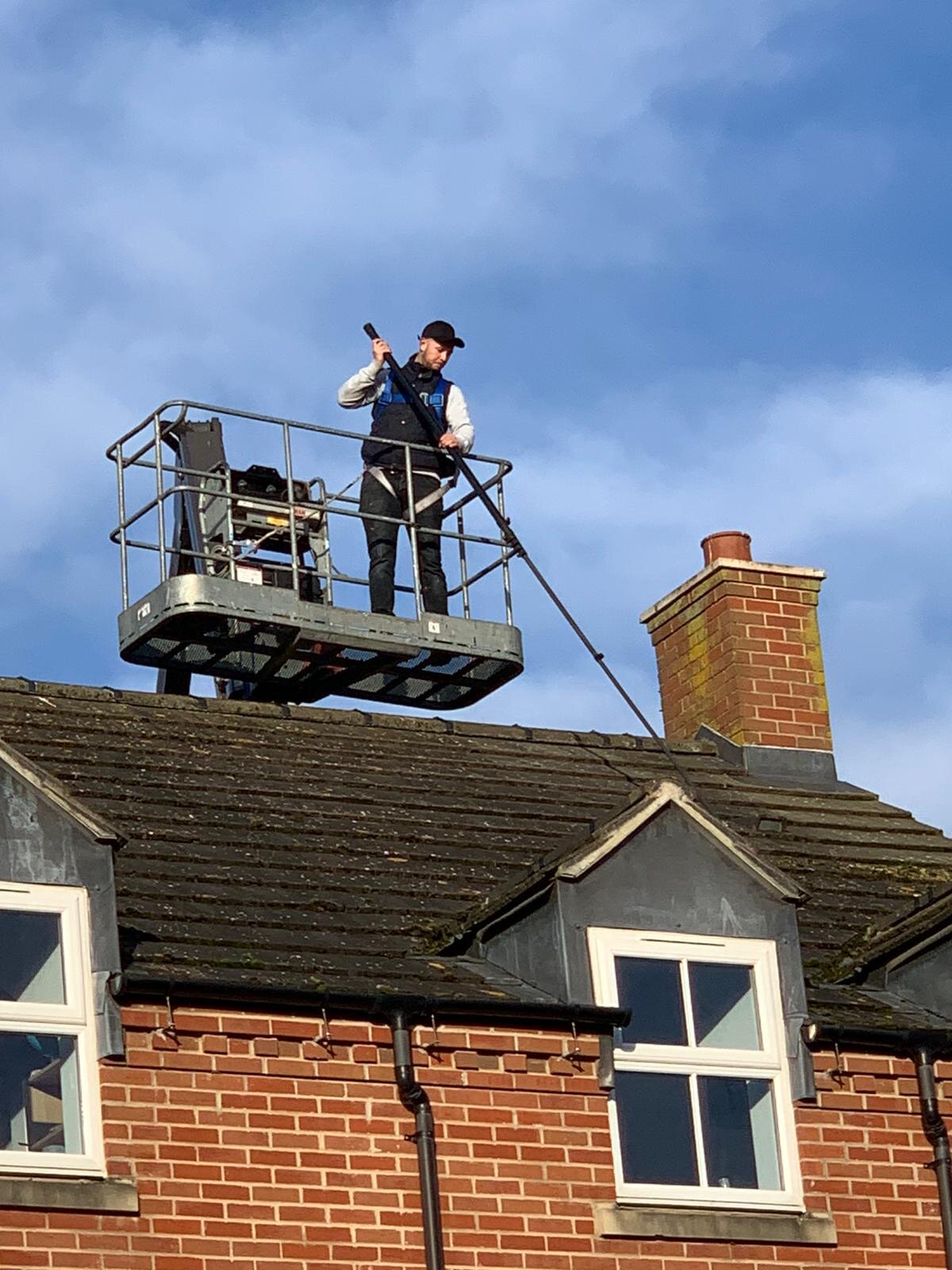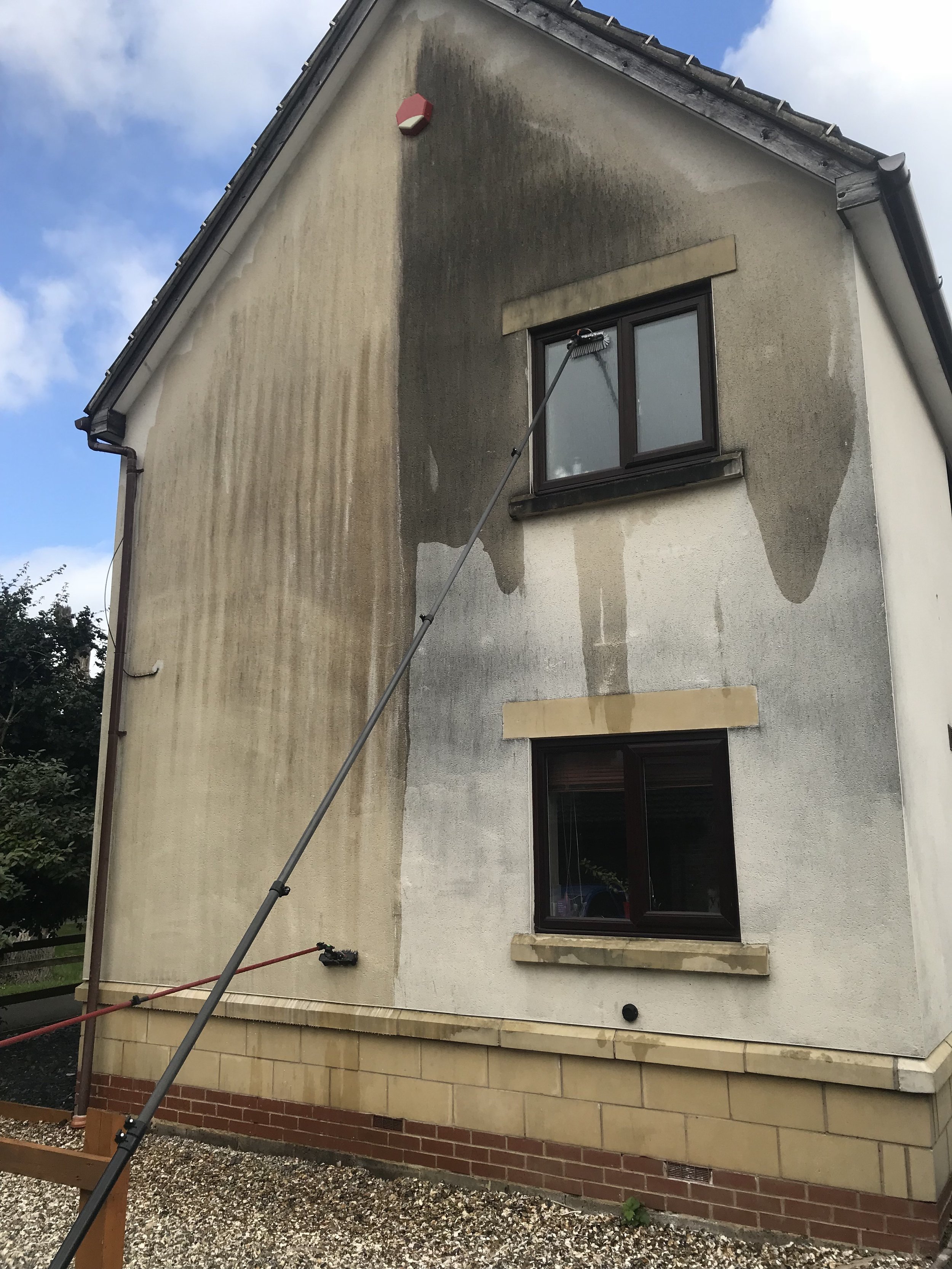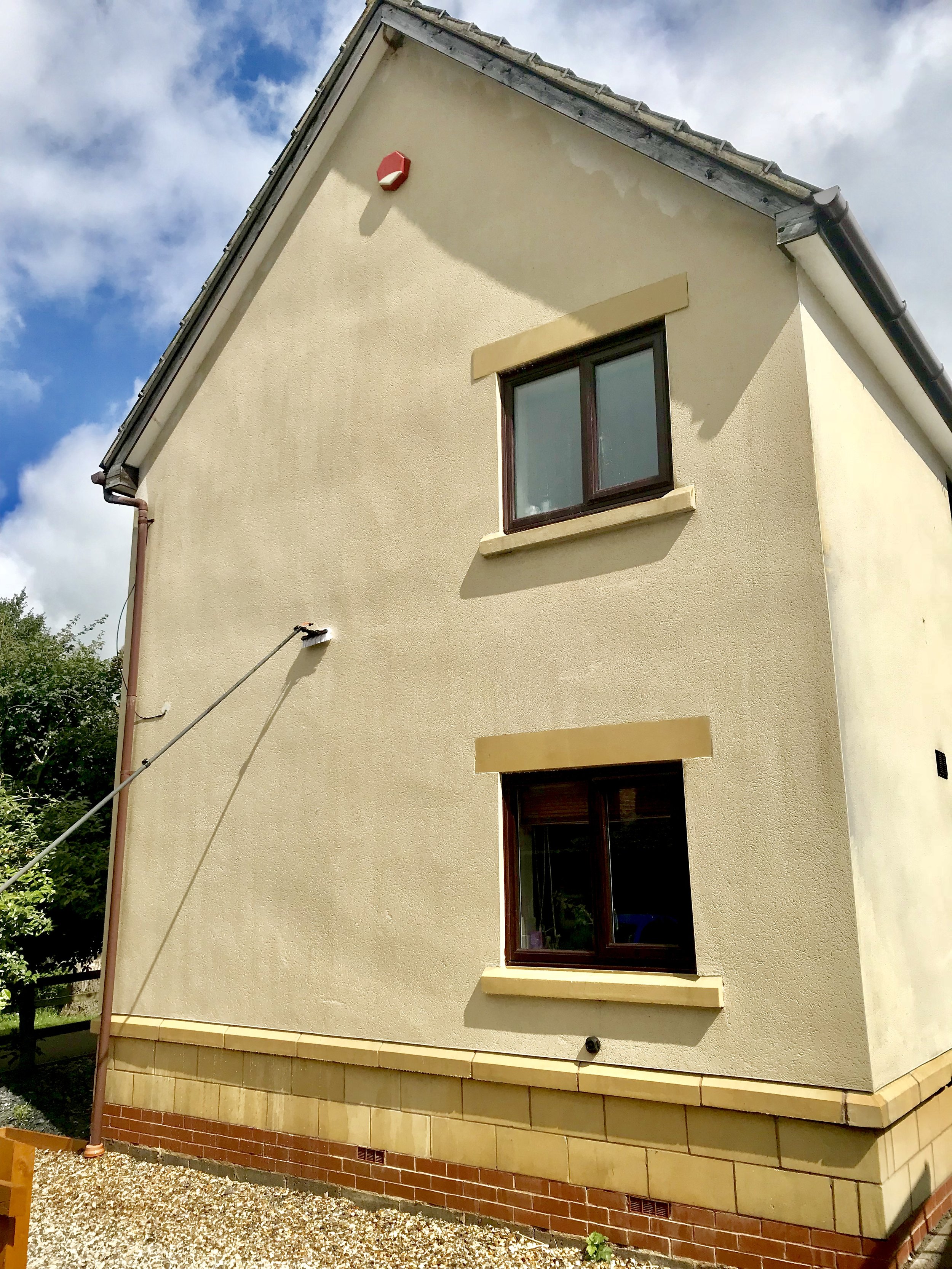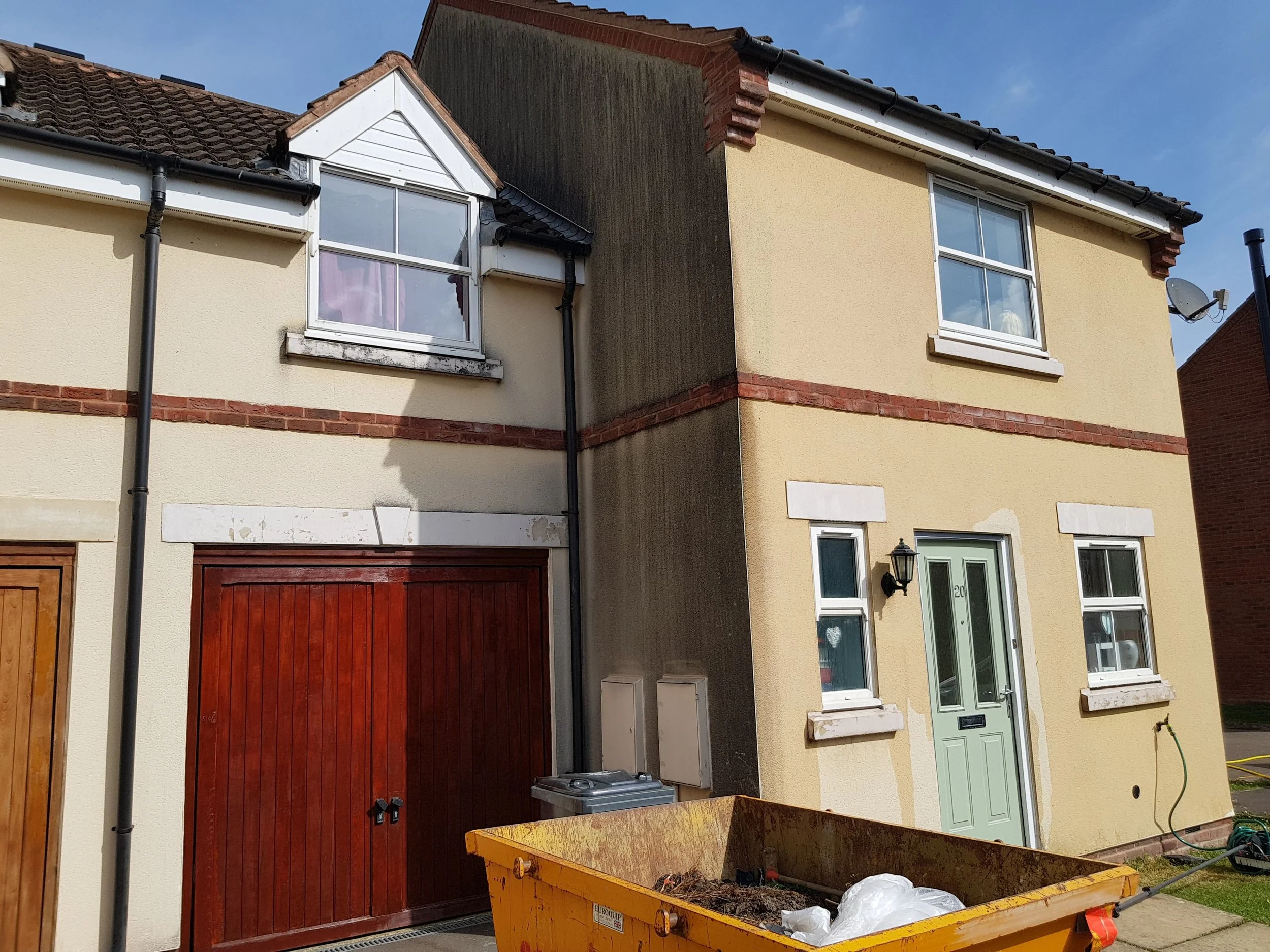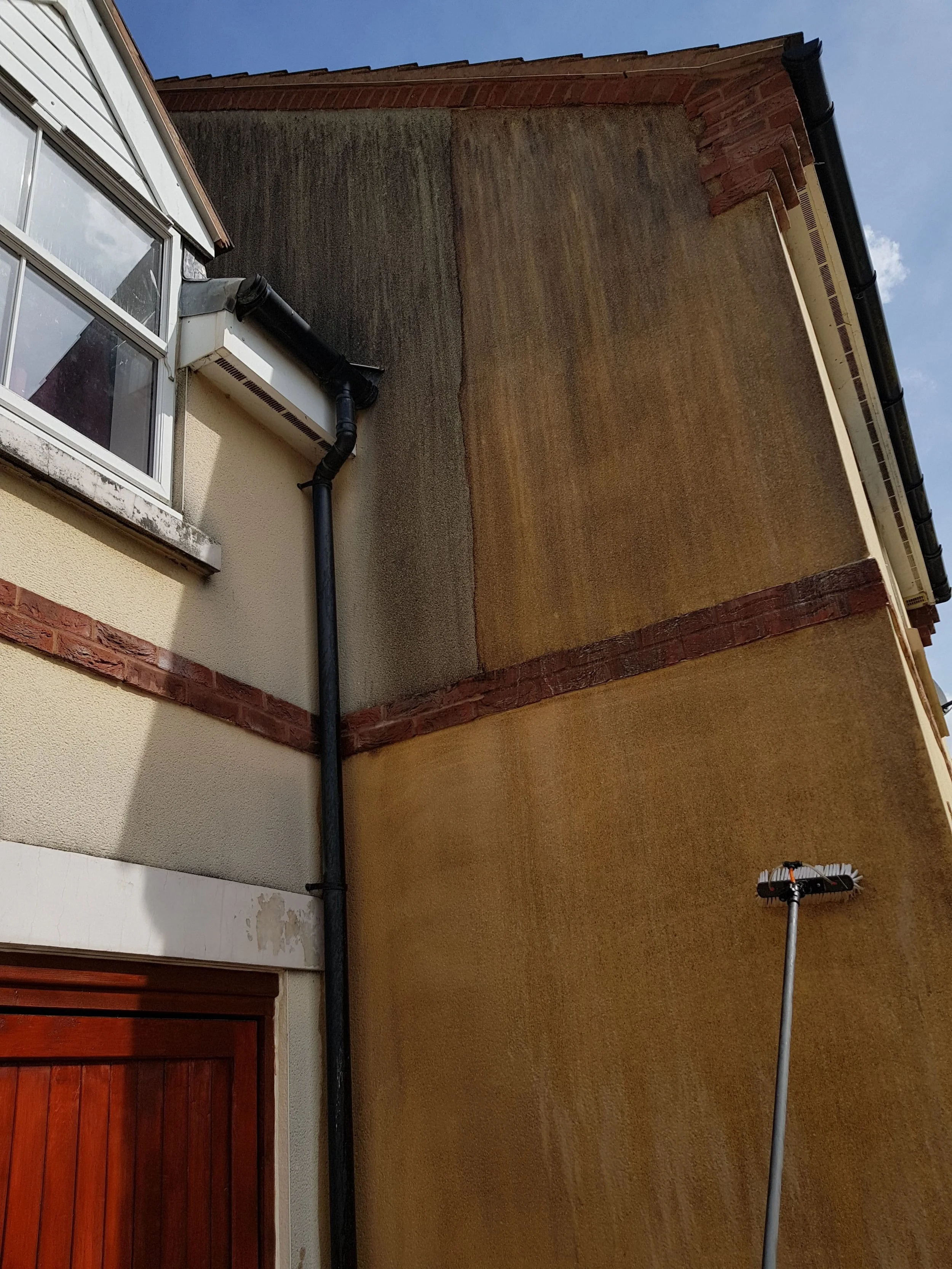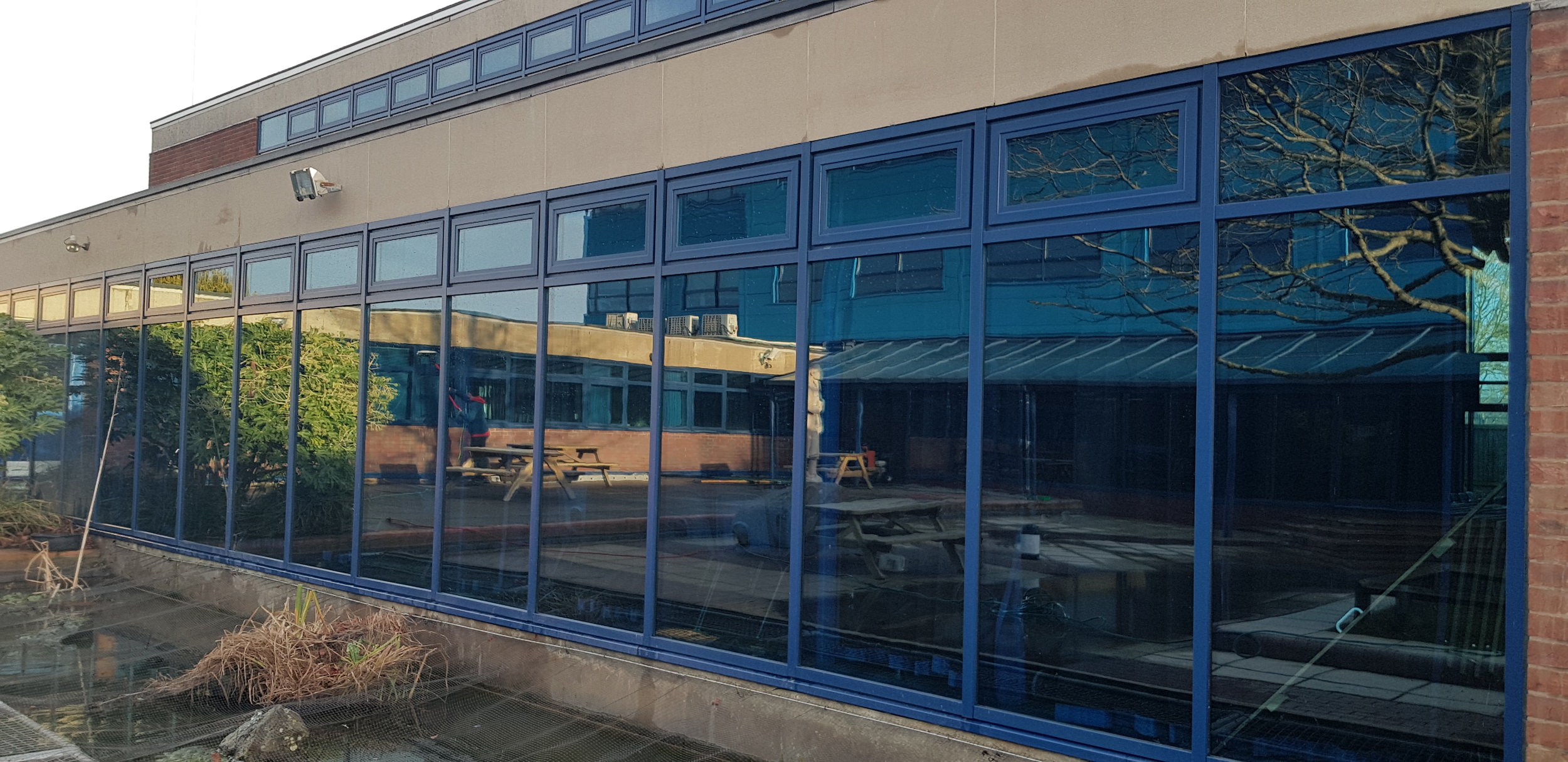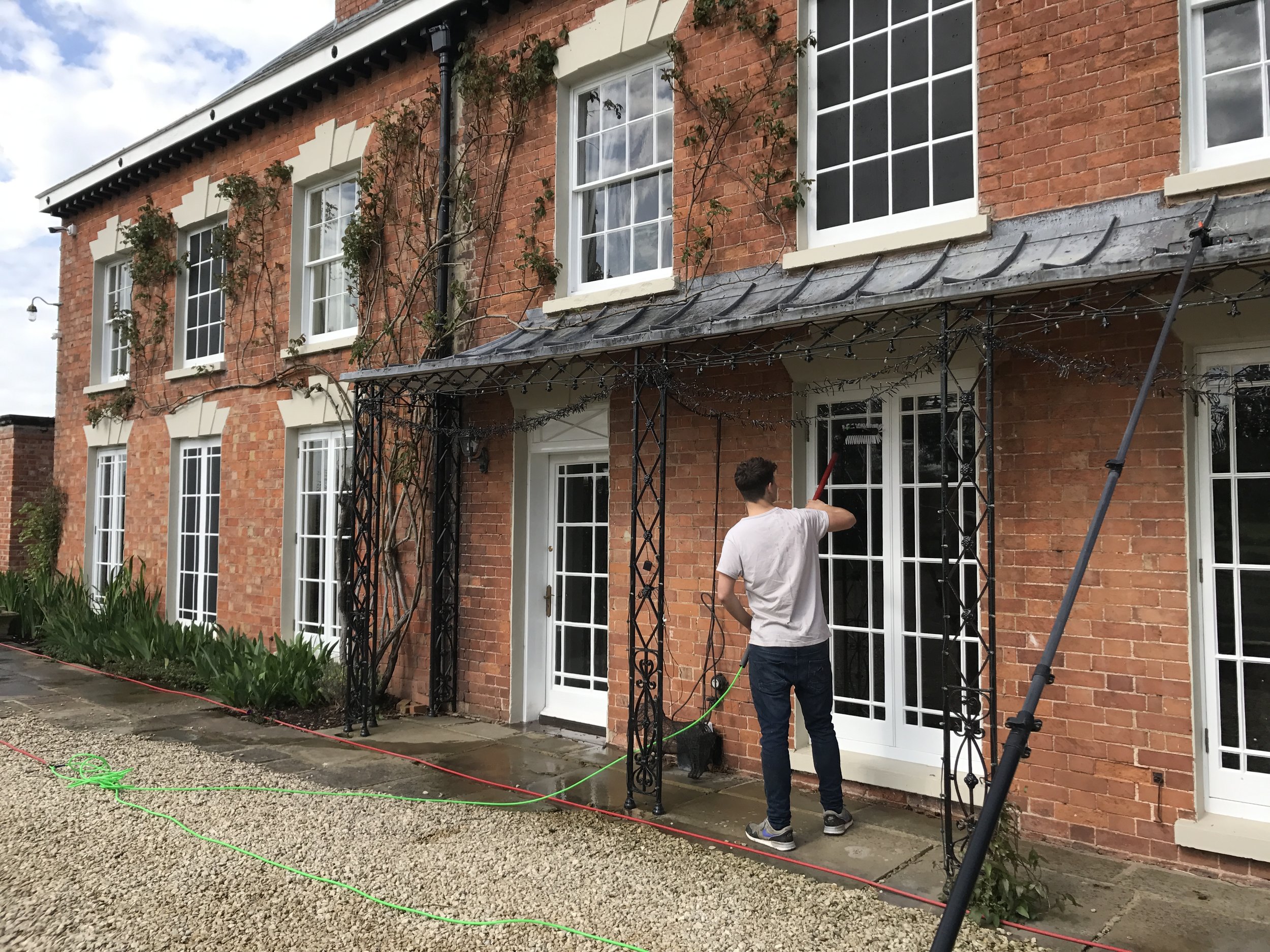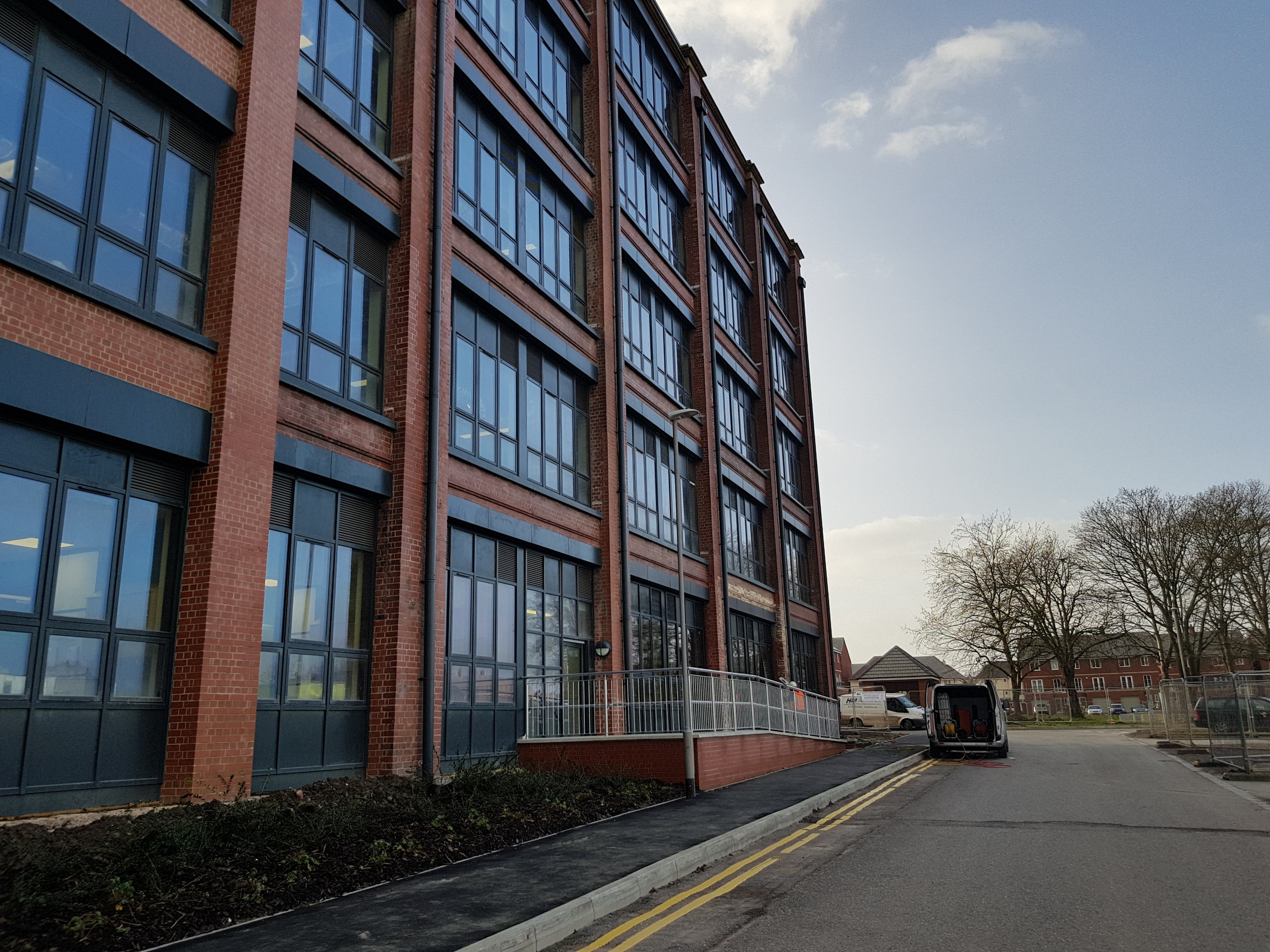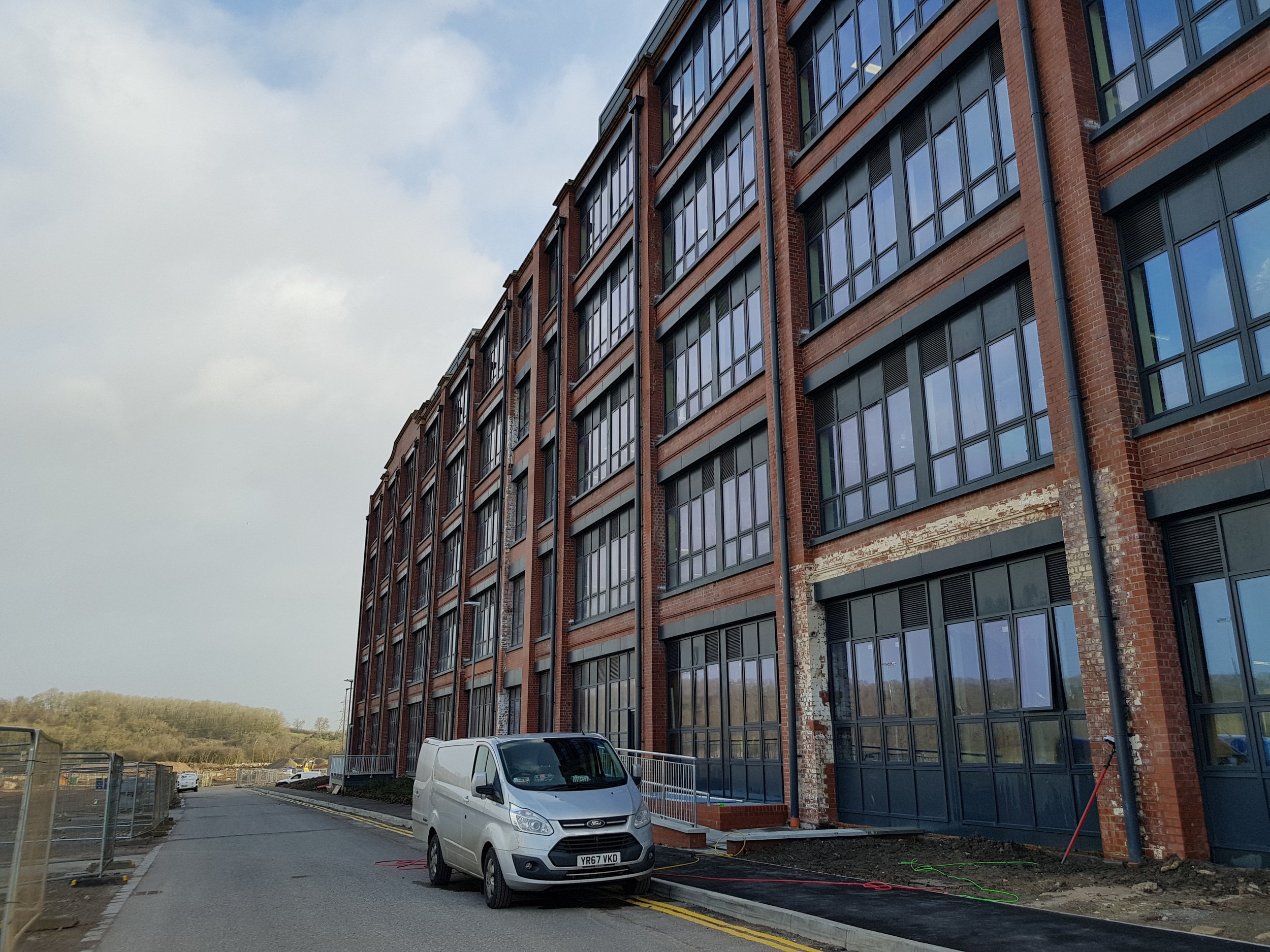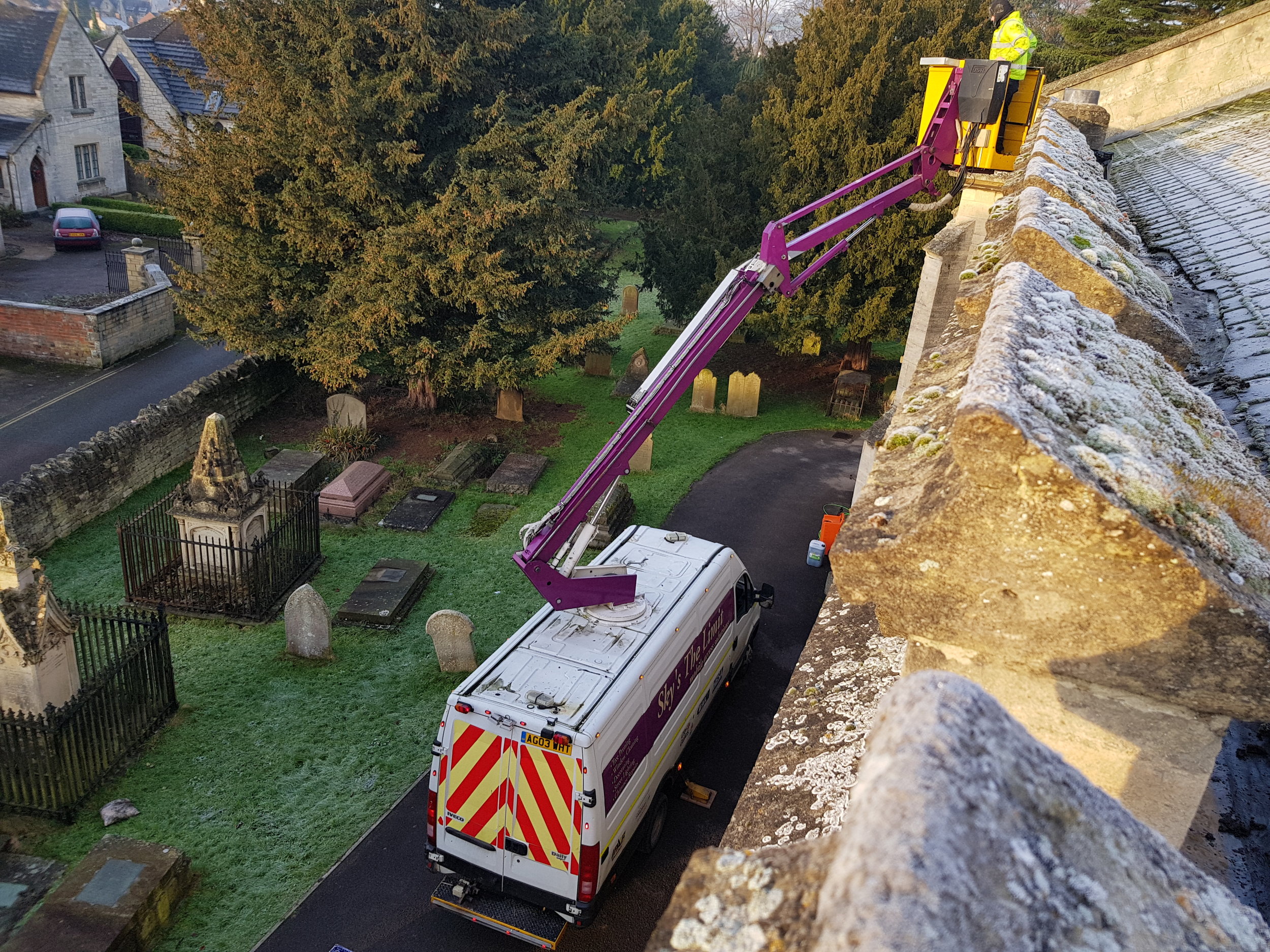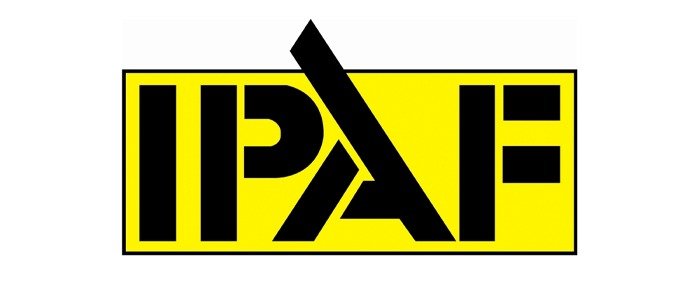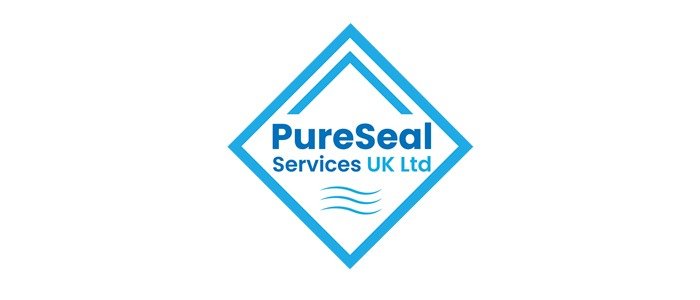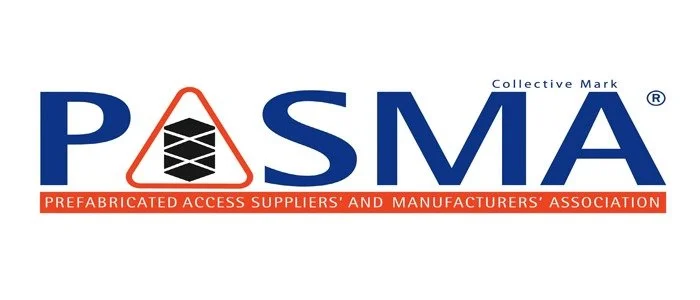You may not be able to see the dirt and grimy buildup on the exterior of your home, but believe me, it’s there. This accumulation of dirt is not a reflection on your cleaning or home maintenance abilities—it’s simply part of your house being exposed to the elements.
But that doesn’t mean that you have to sit idly by as years of grime dull your beautiful home. Instead, use a pressure washer to remove the dirt and bring your home’s exterior back to life. Sounds easy enough, right?
Well, pressure washers can cause a lot of damage if you don’t know what you’re doing, so it’s important to do a little research before getting started. If you’ve never used a pressure washer, you’ve come to the right place. We have many years experience using pressure washing equipment and are here to help .
Petrol or Electric Pressure Washer?
Pressure washers work by using a pump to increase the pressure of water flowing through the attached hose. That pump can be powered by petrol, deisel or by electricity, and there are pros and cons to both.
We use petrol pressure washer because they provide higher PSI (pounds of pressure per square inch) and GPM (gallons of water per minute) than an electric version. The extra power means that we can clean surfaces much quicker and to a better standard.
Your circumstances and needs may differ, so use the information below to help guide your decision.
Petrol pressure washers
Pro: Petrol powered pressure washers can produce a wide range of PSI and GPM levels, which means that they clean faster and more efficiently than electric models.
Pro: Petrol pressure washers are cordless, so if you aren’t near a power outlet, you’ll still be able to work.
Con: Petrol engines—even small ones—require consistent maintenance. You will need to periodically change the oil in your Petrol pressure washer and make sure that you use the proper fuel additives if you plan to store the machine for an extended period of time.
Con: Petrol engines are louder than electric engines, and they do produce emissions. You cannot use a Petrol powered pressure washer indoors or in covered spaces.
Con: Petrol pressure washers are a lot more expensive than your standard electric pressure washer.
Electric pressure washers
Pro: Electric pressure washers do not produce harmful emissions—if you had to, you could use one indoors (though you would want hearing protection and a reliable way to remove the water).
Pro: An electric engine means that you don’t have to worry about oil changes and other maintenance tasks.
Con: An electric pressure washer simply cannot produce the power of a gas-powered model. If you need to clean a large or especially dirty area, an electric pressure washer will take much longer to complete the job (and you may not see the results you hoped for).
Con: Because they require a power outlet, electric pressure washers are not as portable as gasoline versions.
What Size Pressure Washer is Best?
Regardless of whether you choose a petrol or electric pressure washer, you will also need to make a decision about the size of the engine. Like any other engine-powered machine, the size of the engine determines the total power of the unit. A small engine will not be able to produce the water pressure or the gallon-per-minute output of a larger engine.
Generally speaking, pressure washer engines are categorized four ways:
Light-duty pressure washers produce water pressure levels under 2,000 PSI. If you only plan to clean the occasional outdoor household item or a small deck or patio, a light-duty electric pressure washer is perfectly sufficient.
A medium-duty pressure washer is what you’ll need if you’d like to clean your home’s siding, driveway, or fencing in addition to smaller jobs around the house. A pressure washer of this size produces water pressure levels between 2,000 and 2,800 PSI.
If you know you’ll be cleaning large areas of concrete or needing to reach a second story, a heavy-duty pressure washer may be your best bet. Heavy-duty pressure washers reach pressure levels of between 2,900 and 3,300 PSI.
Planning to do a lot of pressure washing? Are you preparing your home’s exterior for a repainting job? If so, consider investing in a professional-grade pressure washer or calling the us! The extra-heavy-duty engine of this type of pressure washer is designed to handle many work hours and produce water pressure levels of 3,300 PSI and higher.
Regardless of which pressure washer you choose, remember to take the GPM measurement into account, too this can be just as important as PSI !
Which Nozzle is Best for the Job?
While the size of the pressure washer’s engine determines the machine’s overall power, the nozzle you choose determines the angle of the water stream. This angle is important because it affects what the water stream can do—a narrow-angle spray is more powerful than a large-angle spray.
Luckily, pressure washer nozzles are universally color coded:
Red: A red tip is the narrowest angle—zero degrees. This tip creates a water stream that can do a lot of damage, so be careful if you need to use it. Don’t use a red-tipped nozzle up close to any surface.
Yellow: The yellow tip creates a spray with a 15-degree angle. Reach for this nozzle when you need to pressure wash concrete around your house.
Green: A green tip produces a 25-degree spray that works well for all-purpose household pressure washing. This is the nozzle to use if it’s time to wash your car or clean mildew that has accumulated on your patio furniture or deck.
White: Perhaps the most user-friendly nozzle, a white tip produces a 40-degree spray. Use the white tip if you’re embarking on an exterior home cleaning adventure. A white-tipped nozzle is suitable for windows and siding.
Black: Producing a spray angle of 65 degrees, a black nozzle is the gentlest. In fact, this spray is so light that it won’t remove dirt or stains; instead, use this nozzle when you need to make a surface wet.
For even more efficient cleaning, consider using an attachment that was designed specifically for the job you need to complete. Here are some popular pressure washer attachments:
Surface cleaner: This attachment uses a spinning bar to distribute the high-pressure stream of water over a larger surface area than a single spray alone. This attachment is helpful for cleaning large expanses of concrete, like a driveway.
Rotary nozzle: Also called a turbo nozzle, a rotary tip produces a spinning zero-degree water stream. This nozzle is especially useful for removing difficult stains and grimy buildup.
Pressure washing broom: Similar to a surface cleaner attachment, a pressure washing broom divides a single water jet into two or three for more power and a larger cleaning area.
Expandable wand: An expandable wand will give you more reach when you need to clean surfaces up high without using a ladder.
Soap/detergent reservoir: A soap/detergent reservoir attaches to the pressure washer and adds cleaning solution into the jet of water. Be sure to use the right nozzle for this job—a water stream that is too strong will force soap into the surface, which can cause damage.
How to Pressure Wash
Pressure washing can be a messy job—and dangerous if it isn’t done correctly—so it’s important to take the time to adequately prepare.
Here are the safety tips I followed as a beginner:
For any pressure washing job, be sure to wear eye protection and hearing protection. Pressure washers are loud, and the high pressure of the water means that debris and water will spray back toward you.
Until you gain confidence with the pressure washer, hold the wand securely with both hands so that it won’t fly out of your grip.
Keep the spray tip approximately 18 inches away from the surface you’re cleaning to minimize the risk of damage.
If you are thinking about pressure washing painted siding (or any other painted surface) from before 1978, don’t. Contact a professional pressure washer instead. Old paint can flake off when pressure washed, and neither you nor anyone else in your family—pets included—need to breathe in or accidentally consume lead paint chips or dust.
Check out these tips for safely pressure washing a few common areas around the house:
Cleaning a wood deck or fence
Pressure washing is a fantastic way to bring your wood deck or fence back to life, and it’s a project you can complete in a weekend. Here’s what you’ll need:
A Petrol pressure washer—you can use an electric power washer, but keep in mind that the job will take longer
A green-tipped nozzle for a 25-degree spray
Wood sealer of your choice
If this is your first time working with a pressure washer, I highly recommend you do a similar test run before beginning your project in earnest. Most fences and decks are constructed from relatively soft woods, such as pine or cedar, and it’s easy to strip off more of the surface than you intended.
Here are my tips for getting results you’ll be proud of:
Move the pressure washer’s wand in an even, up-and-down motion.
For the most even cleaning, try not to let the spray linger in any one place. As you’re getting the hang of it, you may need to make a couple of passes over the same spot, but that’s much better than getting too aggressive and damaging the wood.
Don’t stop the spray in the middle of a board—wait until you’re at the top or bottom.
Likewise, don’t start spraying in the middle of a board.
Use overlapping strokes to avoid visible lines.
Once you’ve finished pressure washing, it’s time to seal the wood to protect it from the elements. But first, let the wood dry for at least a day.
We also offer a soft-washing service which is great for cleaning wood with causing and damage at all.
CLEANING BLOCK PAVING?
A good clean with a broom and strong detergent.
Apply a weed preventative between joints of your block paving.
If using a power washer, it should be angled at 30°and sprayed diagonally on a medium pressure.
Make sure all cleaning product has been rinsed away.
Re-sand or re-point any joints if necessary.
HOW DO I REMOVE STAINS AND SPILLAGES?
The application of any treatment should be carried out on a small section of the affected area first, with manufacturer’s instructions strictly followed.
Try to identify the source of the staining (e.g rust from iron gutters) and repair it. This will prevent any further staining to your paving.
We have advise on how to remove and treat the following stains – moss, algae, rust, grease, oil, paint , tyre marks and more.
HOW DO I TREAT MY PATIO OR DRIVEWAY WITH CHEMICALS AND ACIDS?
Ensure there is sufficient ventilation is when using chemicals.
Whilst using chemicals, extra care has to be taken to avoid damaging or staining adjoining material.
Whilst diluting acids, remember to always add acid to water and not water to acid.
Any clothes that have been stained with chemicals need to be safely disposed of.
Safeguard the operating area so that there are no hazards for those working in the surrounding areas.
Any excess run off material must be safely disposed of.
HOW DO I TREAT EFFLORESCENCE?
After initial installation, any product containing cement may exhibit a temporary white discolouration known as efflorescence. This is not a product fault and will gradually disappear with exposure to natural weathering and trafficking.
Initial Block Paving Maintenance
• For the first few weeks after being laid, the joints between a block paved surface will be relatively porous. Ingress of water from rain or other sources will consolidate the jointing sand and even flush it out (particularly on sloping sites). It is important that these joints are topped up with jointing sand to prevent damage to your driveway.
General Block Paving Maintenance
• A general clean at the start of Spring with a stiff broom and a good detergent followed by the application of a proprietary weed preventative restricts the ingress of weeds between joints which can affect the long-term durability of your patio/driveway
If you use a power washer to clean your patio/driveway, the water jet should be angled at no more than 30° to the paved surface and sprayed diagonal across the joints.
When using any cleaning product, you must ensure it is thoroughly rinsed from the surface and channelled to suitable drainage points. Once this has been done, inspect the integrity of all the paving joints, and re-sand or re-point any damaged joints as necessary.
Cleaning concrete
Obvious stains and mildewed areas on concrete are relatively easy to spot, but everyday dirt buildup is frequently overlooked.
If you’d like to pressure wash your own concrete driveway, walkway, or patio, here is what you’ll need:
High-GPM pressure washer
Yellow-tipped nozzle for a 15-degree spray
Cleaning solution specially formulated for use on concrete
Stiff scrubbing brush
Protective gear—goggles and gloves, at minimum
You’ll need a very high-pressure stream of water to clean concrete, so it’s important to protect yourself from any flying debris (including pieces of concrete) worked loose by the water. Here’s how to pressure wash concrete safely and efficiently:
Thoroughly sweep and brush off the surface before you start.
If your driveway has been stained by motor oil or another fluid, pretreat those areas by using the stiff brush to scrub the stains with concrete cleaning solution.
When you’re ready to pressure wash the surface, be sure to use the right nozzle
If the stubborn stains need more help, add soap to the pressure washer’s detergent reservoir and switch to the nozzle labeled “soap.”
Particularly tough stains may need a few passes with the pressure washer.
The Bottom Line
It is an important part of taking good care of your home. You may decide that pressure washing is just too much of a hassle. And that’s OK! It’s a dirty job, after all, and you’re virtually guaranteed to get soaking wet. If you’d rather let someone else take care of the pressure washing, contact a US for a free quotation.
Diamond Shine
www.dswindowcleaning.co.uk







